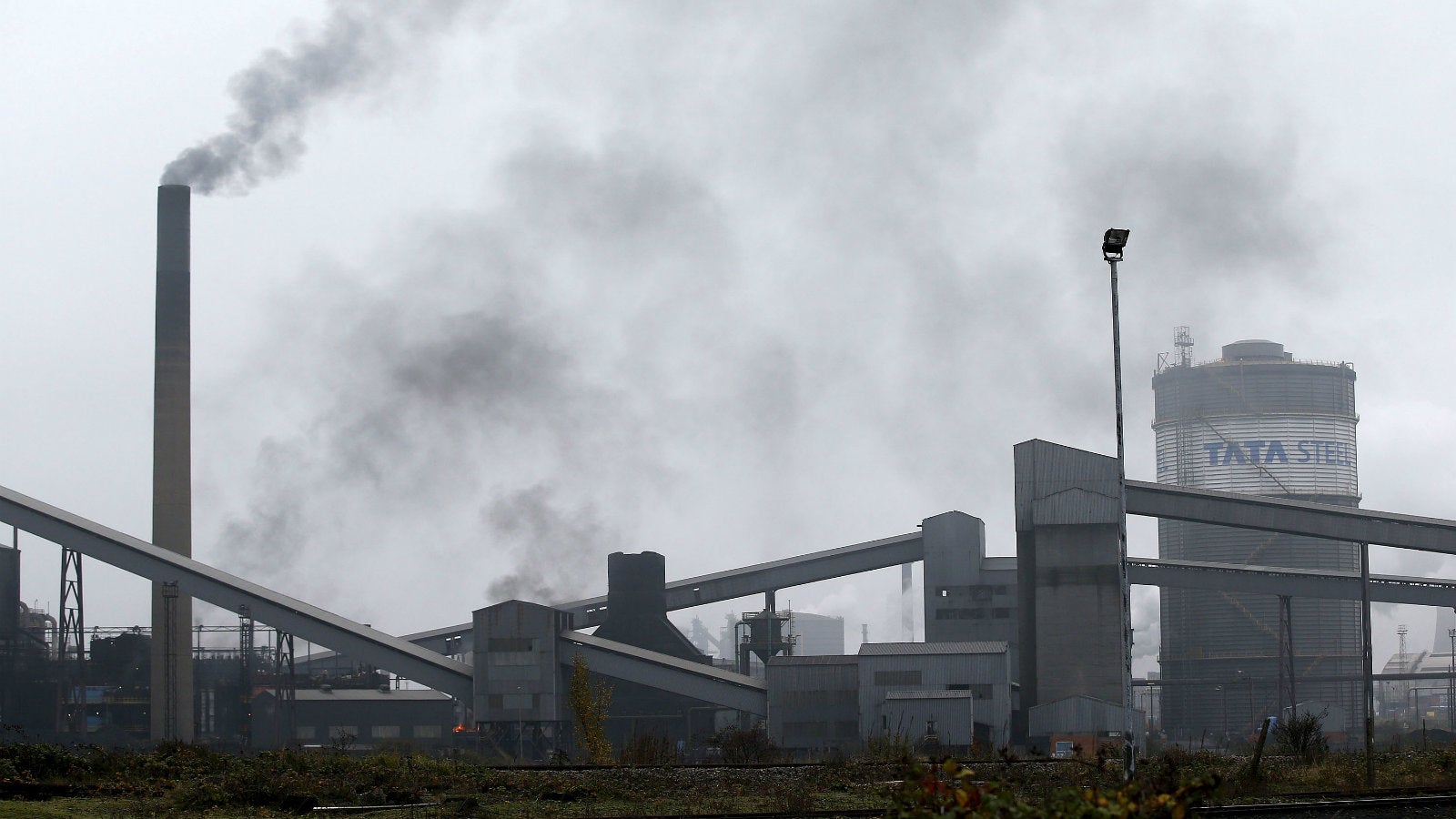Tata Steel’s fire sale in the UK will do little to move its mountain of debt
Tata Steel’s British operations are in a bit of a mess. Demand in the UK has fallen, costs have escalated and cheap imports are an increasing threat.


Tata Steel’s British operations are in a bit of a mess. Demand in the UK has fallen, costs have escalated and cheap imports are an increasing threat.
So, India’s largest steelmaker is looking for an investor for its distressed UK units. It has already sold its European long products business to Greybull Capital. Long products include (pdf) steel wires, rods, and bars among others.
Meanwhile, on April 21, the UK government said it is willing to buy a 25% stake in the firm’s other UK steel assets and partly nationalise them.
The situation is a result of the weak steel demand in the UK and rising costs. Over-supply and cheap imports, and currency volatility, have also had a negative impact. Together, all these factors have pummelled the financials of Tata Steel’s UK subsidiary in the last 12 months.
The proposed restructuring, however, is unlikely to help it to cut Tata Steel India’s—the parent company—massive consolidated debt of Rs71,798 crore ($10.8 billion). Tata Steel India’s standalone debt is Rs25,332 crore, as of September 2016. The company also has huge pension fund liabilities to consider in Europe.
Back in India, Tata Steel isn’t doing particularly well either. For the three months ended Dec.31, 2015, the company posted a loss of Rs2,127 crore. Its ability to pay interest was one of the lowest in the steel industry, a Credit Suisse report said.
An email sent to Tata Steel asking about the financial impact of restructuring hasn’t been answered yet.
Debt
Tata Steel’s massive debt can be partly attributed to the acquisition of the European operations in 2007.
That year, the company acquired Anglo-Dutch steelmaker Corus and almost half of the funds required for the $12.1 billion buyout was raised through debt—it borrowed at least $6 billion back then. The acquisition gave Tata Steel access to assets in the UK and Europe.
Over the years, the debt ballooned as the steelmaker struggled to expand in Europe. The economic crisis of 2008 marred demand, as the global economy slipped into recession.
Now, even with the sale of assets in the UK, the debt trouble isn’t likely to abate quickly.
On April 14, Standard & Poor’s said the sale of the long products business—Tata Steel sold it to Greybull Capital for GBP 1—will only bring down cash losses.
“We do not expect the sale to lower the debt at Tata Steel because the sale is agreed at a nominal valuation. Moreover we believe transfer of debt to the buyer is unlikely,” S&P said in a report.
In a note on April 18, India Ratings and Research, a unit of Fitch Ratings also said that the Greybull deal isn’t likely to mean any direct reduction debt, although it’ll help Tata Steel to “lower cash burn.”
Pensions
Then, there are the pension funds.
The GBP 15 billion British Steel Pension Scheme, a part of Tata Steel UK, has 130,000 members and will not be taken over by the new buyer. This means the liability stays with Tata Steel.
The pensions can be sold to an insurance company but that will need additional fund infusion of at least GBP 3.5 billion by Tata Steel. The other option is for the parent company to guarantee the liabilities.
Here is what an April 20 report by brokerage firm IIFL said about the pension fund liability:
Note that Greybull Capital has not taken over the pension funds associated with this business. Further sale of the UK businesses might be on similar terms. This could leave Tata Steel in UK with no assets but pension funds. Gains from the asset sale depend critically on how the pension funds are dealt with. Pension fund deficit has increased to GBP 485 million as at end of the 2015 financial year. Exit from pension fund might not be easy since: 1) Tata might have to contribute about GBP 3.5 billion to sell fund to professional managers; and 2) the fund might not meet the criteria for takeover by the Pension Protection Fund (PPF).
Regaining profitability will remain an uphill task for Indian steelmakers, according to Credit Suisse. The brokerage, however, believes the worst might be over as costs have stabilised, inventory cycle bottomed. And demand might just pick up.
There is some light at the end of the tunnel.